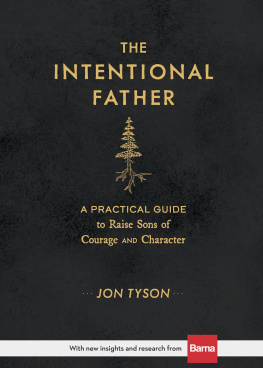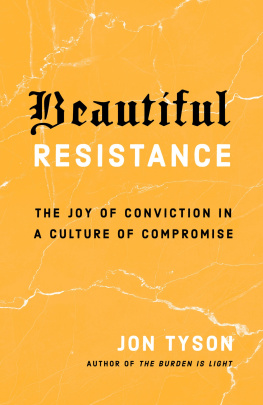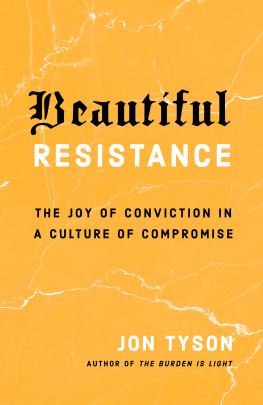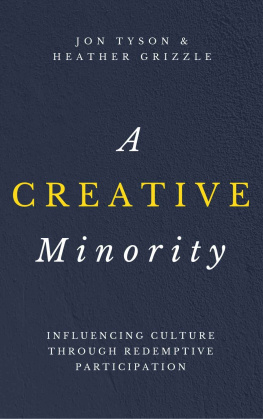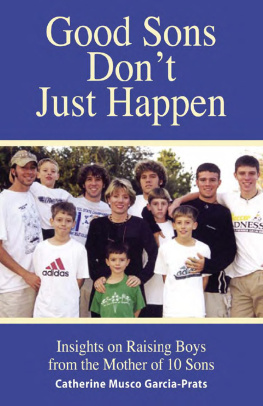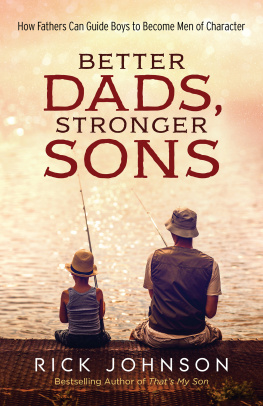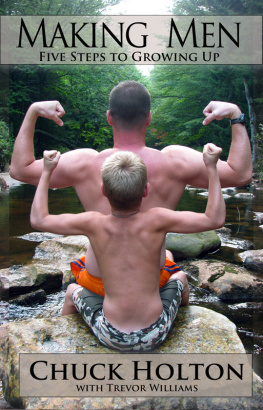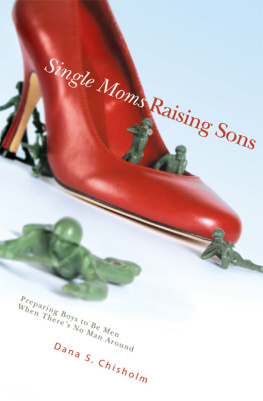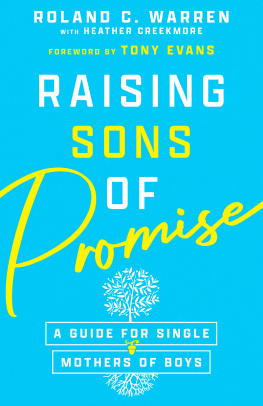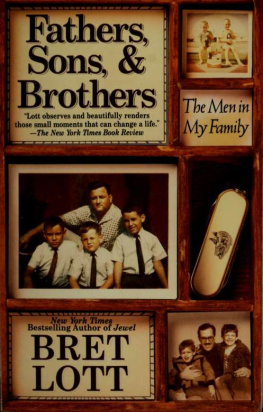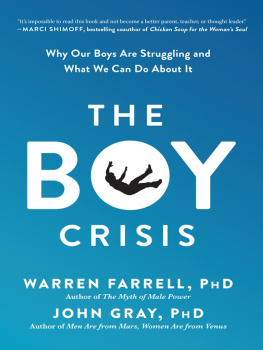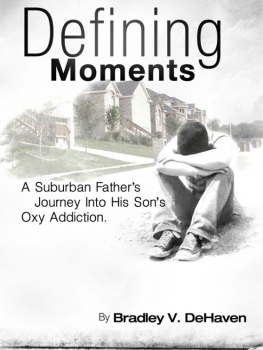1. There Is a Need for Fathers
2. Five Kinds of Fathers
3. A Preview of the Possible
4. Honoring Your Father
5. Ceremony
6. Home
7. Values
8. Five Shifts
9. The Power of Preparing for Moments
10. Being Good at Being a Man
11. Roles to Master
12. Self-Discovery
13. The Arc of Life
14. The Gap Year
15. Ceremony of Welcome and Blessing
16. The Intentional Father
Foreword
DAVID KINNAMAN ,
president of Barna and aspiring intentional father
I ENCOUNTER QUESTIONS like these all the time: Do you have any research or insights about raising boys? Why is it so hard to disciple young men? What can we do to make a real difference in the lives of our sons?
I believe that answering these questionsthinking through the nature of the challenges they represent and turning our hearts, minds, and hands to solutionsis one of the urgent matters for Christians today.
Heres why: based on my Barna teams research, I contend that our society is facing a crisis of raising boys into men of character and consequencethat is, young men who live with integrity and make a positive impact with their lives. Whether were talking about the powerful allure of video games and entertainment, the harmful forces of toxic masculinity, major disruptions to finding a vocation and work, questions of sex and sexuality (including queries into the nature of gender identity itself), the phenomenon of digital-access porn, the paucity of good role models for young men, or so much more, the obstacles seem stacked against young men. Not to mention the many roadblocks and speed bumps on the path to a young man owning his faith in todays spiritual ecosystem where young menand young women tooare evangelized by the gospel according to YouTube.
Its easy to feel overwhelmed and that things are spinning out of your control. (Tip: they are.)
But there is a way forward. This remarkable book from my friend Jon Tyson is the field guide for walking the path of intentional fatherhood.
Now, beyond my profession as a social researcher and cultural analyst, I find the posture and practices Jon explores here to be deeply personal for me. I have struggled to know how to raise my own son, Zack Kinnaman, into a young man of character and consequence. Not because Zack isnt a great kid; he is. It just feels like the cultural deck is stacked against him, and against me as his dad. Ive also seen other fathers in my close-knit circle of family and friends fight to form their sons into men of integrity and impact. The questions I mentioned at the start of this foreword? I hear them professionally and personally: in my work, in my friendships, and in my own soul.
And too often, as youll see throughout this book, churches arent helping us fathers find a better way. Barnas research for this project shows that practicing Christians are thinking about and experiencing fatherhood in much the same way as everyone else. Uncertain. Overwhelmed. Trying their best but not sure theyre making a difference.
This is where the crisis of raising young men intersects this book. Jon is one of the most helpful voices from whom Ive learned in my journey as a father. I have benefited from his disciplined intention around fatherhood through, for example, his terrific digital course called The Primal Path that undergirds this book. Truth is, I kept calling him for advice and then, after hours of anguished conversations, urged him to partner with us to make his insights more broadly available. The book youre holding is the result.
Jon is one of just a handful of men who have told me, without a hint of pride or puffery, that raising his son is one of the things hes gotten right. Think of that: Ive met thousands of fathers, but only a handful of these have made it a primary ambition to be an intentional presence in the lives of their children and are willing to go on the record to say so. Imagine if the volume of fathers intending to be intentional was turned way up, aiming at nothing less than getting it right: wed be miles ahead in solving this dilemma.
This book aims to help you aim higher.
I can hear the objections that may flood your thinking. What about mothers? Dont they matter too? Of course! A thousand times, yes! This book is particularly written to give lessons to fathers, but it also has wisdom for moms and women who are the guardians of sons (and daughters). Jon made an intentional decisionand we supported itto focus on helping dads like me. And the Barna team made a similar determination to focus our research lens on the plight of raising young men, even though many of our research-based insights also apply to shaping girls into young women of character and consequence. (What Ive learned has absolutely helped me in raising my daughters, Emily and Annika.)
But trying to solve everything often results in nothing at all, so this book looks specifically at becoming an intentional father to address the particular, vexing challenges of raising sons of consequence.
My friendship with Zack has blossomed over the last year. His curiosity and strength inspire me, and our closeness forms a deep well of resilience for us both. I still have so much to learn, but with Jons help, Im convinced that, in working to become an intentional father, I have entered into something truly sacred. I pray this book will help you experience some of the deepest joys you can imagine with your son, as I have with mine.
Acknowledgments
T HANKS TO MY SON , Nathan, for the privilege and joy of walking closely through these complex, deep, and meaningful years. It was your life that inspired me to try to become an intentional father.
A Note to the Reader
W ITHIN THIS BOOK are principles primarily geared toward raising sons. I focus on ways we can intentionally raise young men for three main reasons: First, I compiled this material over many years while attempting to become an intentional father for my own son, Nate, and when I was putting it all together, I had him in mind. Second, these teachings were also used in a video series I called The Primal Path, which was specifically designed to help fathers of sons. Third, our culture has done a terrible job raising young men, and there is a huge need for formational instruction that will help fathers, and other guardians of young men, intentionally bring their sons from boyhood into manhood.

